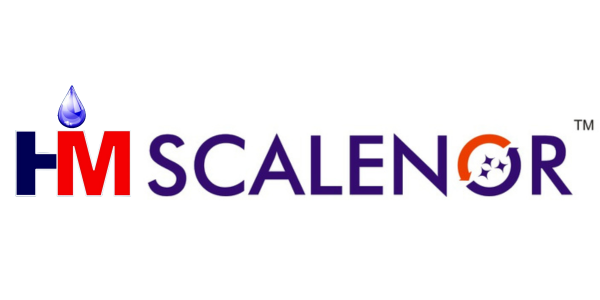
General Questions
Is the HM SCALENOR effective in extremely hard water conditions?
Yes, HM SCALENOR effectively works in extremely hard water conditions.
Will the HM SCALENOR reduce the amount of calcium, silica, or magnesium in water?
No, HM SCALENOR does not reduce the levels of calcium, magnesium, or other divalent ions in the water. However, it converts these ions from their scale-forming divalent form into non-scaling monovalent ions.
Does the HM SCALENOR remove iron particles from water?
No, HM SCALENOR does not remove iron particles. It breaks down iron ions, but pre-treatment with an iron removal media is required to physically remove iron from the water.
What is the maximum flow rate that HM SCALENOR can handle?
HM SCALENOR models are available to handle various flow rates, from 2,000 liters per hour to 10,000 liters per hour. They come with 1½” and 2” inlet and outlet options.
Which HM SCALENOR model do we need for homes and apartments (8 houses, 16 houses, 50 houses, 100 houses)? What is the maximum pipe size it can be used on?
The appropriate HM SCALENOR model depends on the flow rate of raw water, whether it’s from a borewell to an overhead tank, from a sump to an overhead tank, or from a borewell to a sump.
HM SCALENOR is available in various models based on flow rates:
- 2,000 liters per hour
- 3,500 liters per hour
- 5,000 liters per hour
- 8,000 liters per hour
- 10,000 liters per hour
These models come with 1½” and 2” inlet and outlet options, ensuring compatibility with different pipe sizes and water flow requirements.
Will the TDS of raw water decrease after passing through SCALENOR?
No, the TDS (Total Dissolved Solids) will remain unchanged after passing through SCALENOR
Will the hardness of raw water decrease after being processed by HM SCALENOR?
No, the hardness of the processed water remains almost the same as that of the raw water.
Then why should we buy this system?
Good question!
HM SCALENOR uses advanced Electrolysis technology, which operates on the principles of oxidation and reduction. During this process, the system alters the ions responsible for scaling.
Here’s how it works:
- Hard water contains divalent ions like calcium (Ca⁺⁺) and magnesium (Mg⁺⁺), which cause scale formation in pipes, appliances, and heaters.
- As the water passes through the electrolysis chamber, electrons from the anode break these divalent ions into monovalent ions (e.g., Ca⁺, Mg⁺).
- These monovalent ions are non-reactive and do not contribute to scale formation.
- Although the water’s hardness remains the same, these altered ions lose their ability to form scale, effectively preventing buildup.
When testing the water with a hardness test kit (EDTA test), it will still detect the monovalent calcium and magnesium as hardness. However, these ions no longer have the properties that cause scaling, making HM SCALENOR an effective solution for preventing scale in your water system.
